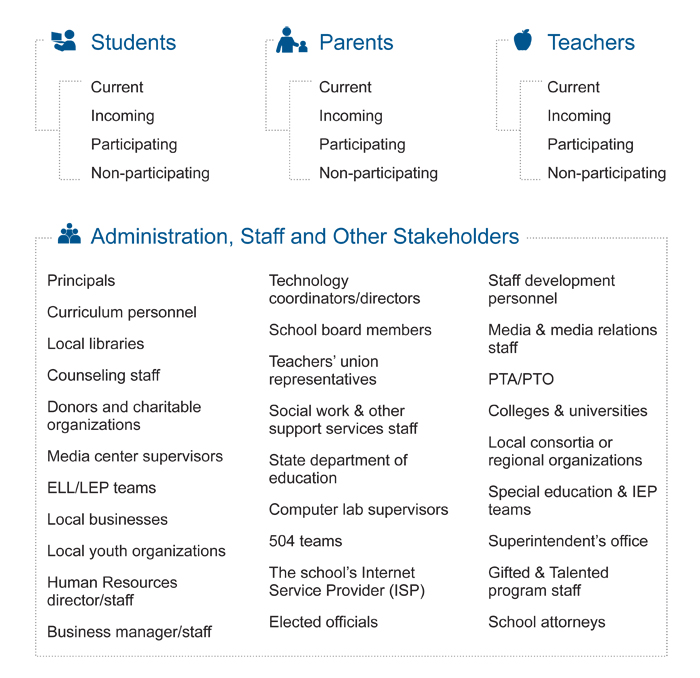Collaborating with Stakeholders
Like any school organization, online learning programs have a large and diverse set of stakeholders. Identifying your stakeholder groups and providing them with suitable means of input and various degrees of control is critical to having broad support to ensure that your program achieves its goals with a minimum of conflict or resistance.
Stakeholder support is even more critical for new online learning programs because of the exceptional amount of attention and scrutiny they often receive. Broad and genuine stakeholder involvement can result in more constituencies of the school community feeling ownership in the program.
To help identify key stakeholders, ask your team the following questions:7
- Who cares if the program is successful (or not)?
- Who will be impacted by the program?
- Who can help create the program or solve specific issues or problems that arise?
- Who brings knowledge or skills that would contribute to program development?
- Who will benefit if the problem is solved or the issue is addressed?
- Who would bring a diverse viewpoint to the project?
The following is a partial list of stakeholders that you may need to consider:

Of all of these stakeholders, and possibly more, which ones will have representatives who are advisory and which will have decision-making authority?
You may wish to establish both an advisory board and a board of directors specifically for your online learning program. By having these two levels of participation, you can create a large advisory board to maximize inclusiveness while still having a governing board of a manageable size.
Parents are an especially important resource. iNACOL has prepared a resource, Sorting through Online Learning Options: A Guide for Parents.10 Reviewing this document will help you better understand what issues are most important to your parents and potential parents.
References for footnotes can be found on the resources page or click on the footnote number for a direct link.
